Israel-Hamas War: What happened on Day 88?
IDF strikes Hamas commander, four Hezbollah terrorists killed • Hamas terrorists admit to exploiting civilians in IDF investigation
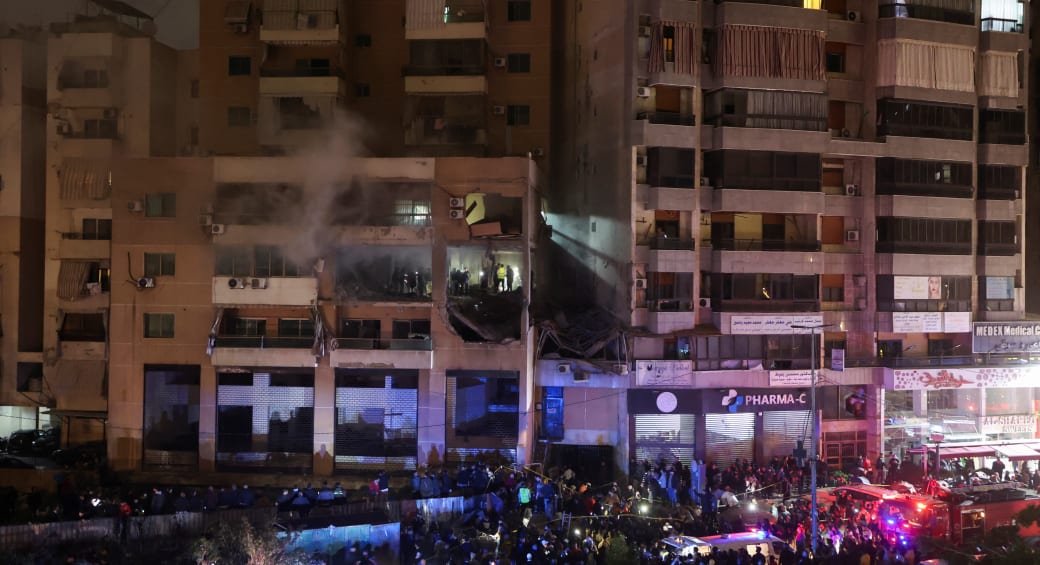

Hamas deputy head Saleh al-Arouri killed in alleged Israeli drone strike in Beirut - report
The strike reportedly targeted an office belonging to Hamas in Mushrifiyah in the southern suburbs of Lebanon's capital.

Saleh al-Arouri, deputy leader of the Hamas terrorist movement, was killed along with at least three other people in an alleged drone strike in the southern suburbs of Beirut, a stronghold for Hezbollah, according to Lebanese reports.
According to the reports, the strike targeted an office belonging to Hamas in Mushrifiyah in the southern suburbs of Lebanon's capital.
Initial reports indicated that both an apartment and a vehicle were targeted in the area.
Arouri has been an Israeli target
Arouri has been noted as a central target for Israel in the past year due to his role in organizing terrorism in the West Bank.
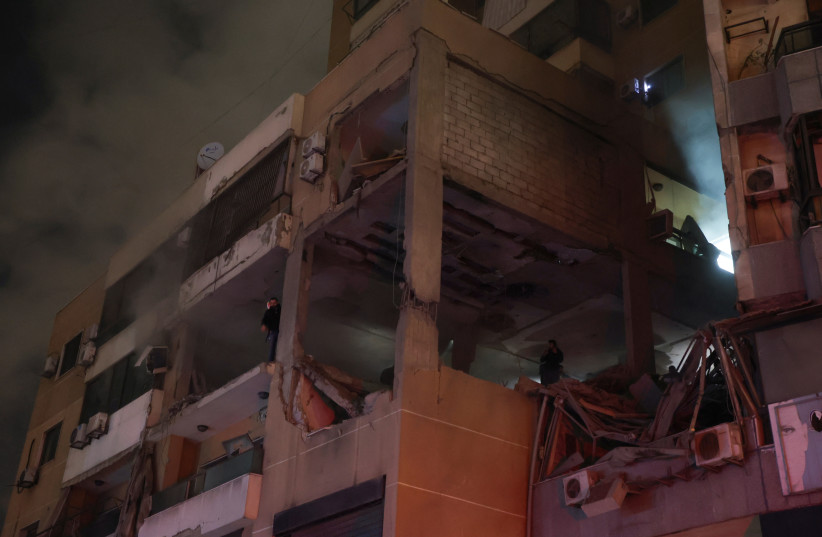
A member of the Palestinian Islamic Jihad terrorist movement told Lebanese media after the incident that the secretary general of the movement, Ziyad al-Nakhala, was not harmed in the strike.
Sderot: One rocket fell on city outskirts, no reported injuries

A rocket fired towards the city of Sderot from Gaza on Tuesday landed on the outskirts of the city, the city municipality announced.
There were no reported injuries or damages to property as of Tuesday evening, but authorities are investigating.
IDF announces name of fallen soldier

Staff-Sergeant Sufian Dagash, a 21-year-old soldier from Maghar, was killed in combat in northern Gaza, the IDF announced on Tuesday.
Dagash was a soldier in the 601st Battalion, 401st "Iron Tracks" Armored Brigade.
Go to the full article >>Maersk will continue to pause all Red Sea shipments

Denmark's Maersk said on Tuesday it would continue to pause all cargo shipments through the Red Sea following a weekend attack on one of its ships.
Go to the full article >>
Haniyeh says Hamas has delivered its ceasefire position to Qatar and Egypt

Hamas chief Ismail Haniyeh said the movement had delivered its position to Qatar and Egypt which is based on "a complete cessation of the aggression" against the Palestinians, helping them and responding to their demands.
"Hostages will not be released except under the resistance's conditions," Haniyeh said.
Go to the full article >>
Israel to defend itself at Int'l Court of Justice's genocide hearing on Gaza
The hearing was triggered by South Africa, which charged that Israel was in violation of the United Nations 1948 Convention on the Prevention and Punishment of Genocide.
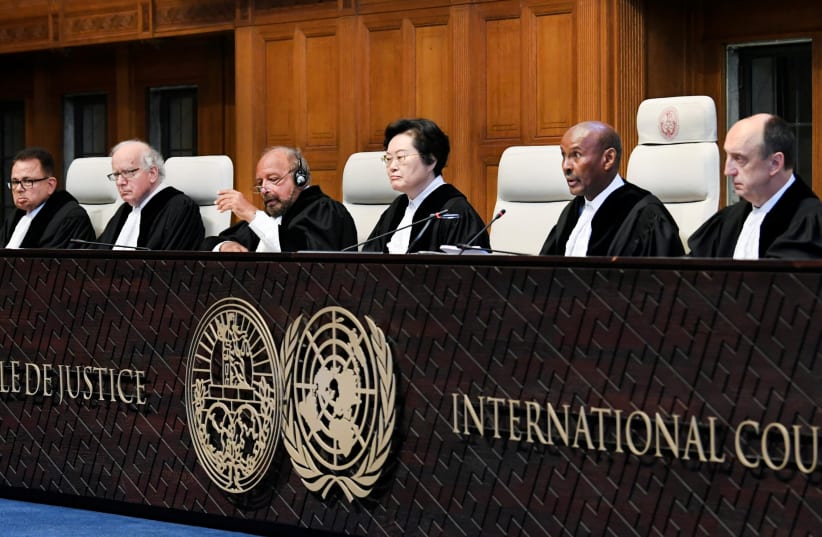
The State of Israel plans to defend itself against charges of genocide against Palestinians in Gaza at a hearing that will likely be scheduled next week before the International Court of Justice (ICJ) at The Hague.
The hearing was triggered by South Africa, which charged that Israel was in violation of the United Nations 1948 Convention on the Prevention and Punishment of Genocide.
“The State of Israel will appear before the ICJ at The Hague to dispel South Africa’s absurd blood libel,” government spokesman Eylon Levy told reporters in Jerusalem on Tuesday.
“How tragic that the rainbow nation that prides itself on fighting racism will be fighting pro-bono for anti-Jewish racists,” he said.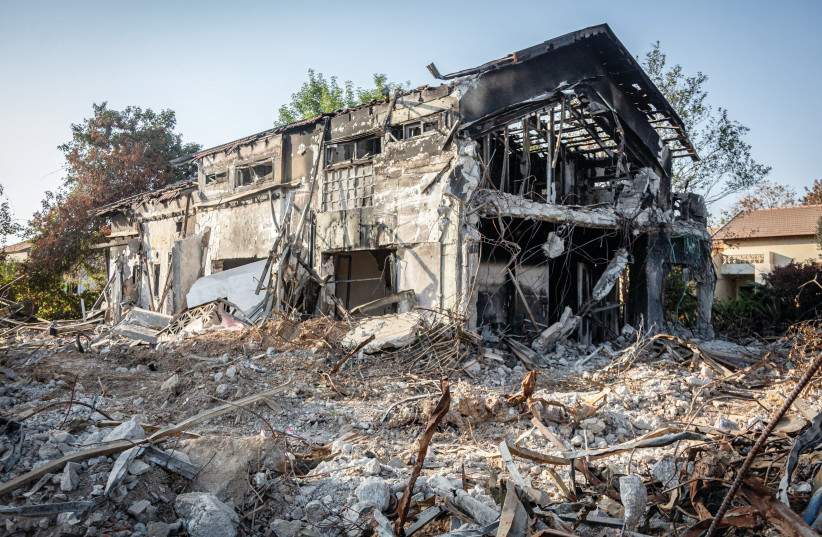
Israel has in the past boycotted legal proceedings against it by UN courts, claiming that the tribunals lacked jurisdiction. It did not participate in the ICJ 2004 legal proceedings that led to the issuance of an advisory opinion on the legality of the West Bank security barrier.
It also does not plan to participate in the ICJ proceedings regarding the issuance of an advisory opinion on the legal status of Israel’s “occupation” of the West Bank, Gaza, and east Jerusalem.
Israel had the option to bow out of the proceedings because they were advisory opinions requested by the UN General Assembly.
South Africa’s direct request for a court hearing against Israel is based on the fact that both countries are signatories to the genocide convention, which stipulates that they accept the ICJ jurisdiction with respect to adherence to that convention.
Israeli officials said that Israel’s decision to appear before the court, located at the Hague in the Netherlands, was approved by the country’s security, diplomatic, and intelligence branches.
“Israel has been a member of the genocide convention since its inception, and at this stage, there is no reason to boycott the [ICJ] hearing,” the officials said.
It was agreed that the “blood libel” embodied in the “genocide” charge “should be fought through participation in the ICJ procedure,” which is a direct response to South Africa’s “disgraceful” actions. The ICJ is obligated to respond to South Africa, they added.
In speaking with reporters, Levy said, “History will judge South Africa for abetting the modern heirs of the Nazis. We assure South Africa’s leaders: history will judge you, and it will judge you without mercy."
Hamas committed 'act of genocide perpetrated with Nazi-like cruelty'
He explained that it was Hamas that was guilty of genocide for leading an October 7 attack on Israel, in which over 1,200 people were killed and some 250 were taken hostage.
Over 70% of those killed were civilians, including women and children. Many of the victims were tortured, raped, burned alive or dismembered.
Levy said that Hamas had “a clear mission to murder as many Israelis as possible—as sadistically as possible. It was an act of genocide perpetrated with Nazi-like cruelty and Nazi-like efficiency in the service of a Nazi-like ideology.
“The only reason Hamas didn't succeed in committing further genocide is because our security forces stopped them,” he stated.
Hamas has said that if given the opportunity, it would execute other October 7 massacres, Levy said. The IDF’s military campaign in Gaza to destroy Hamas is designed to prevent a genocide and is not perpetuating one against the Palestinians, he said.
He noted that South Africa had expressed sympathy with Hamas already on October 8, just one day after the attack.
“History will judge South Africa for abetting the modern heirs of the Nazis. We assure South Africa’s leaders: history will judge you, and it will judge you without mercy,” he added.
South Africa turned to the court, however, only on December 29, when Israel’s military campaign to destroy Hamas close to three months after the start of the war. Hamas has asserted that close to 22,000 Palestinians have been killed in war-related violence. Israel has claimed that some 8,000 of those fatalities are combatants.
Opponents of the war have accused Israel of genocide due to the high date toll among a population of 2.3 million, most of whom have been displaced due to the violence.
South Africa, in its court submission, said Israel's actions were “genocidal in character” given that they were committed with the intent to “destroy Palestinians in Gaza as part of the broader Palestinian national, racial and ethnical group.”
Since October 7, South Africa said, “Israel has engaged in, is engaging in, and risks further engaging in genocidal acts against the Palestinian people in Gaza.”
IDF reservists protest in front of Prime Minister's Office
After 88 days of intense fighting, the IDF reservists took their cause directly to the heart of Israel's political establishment.
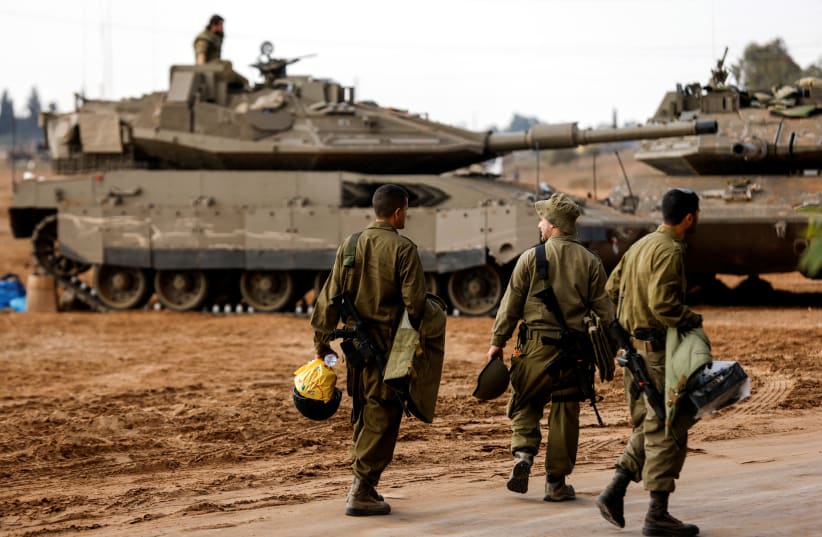
Dozens of IDF reservists established a protest tent outside of the Prime Minister's Office in Jerusalem on Tuesday, calling for sustained military action against Hamas in the Gaza Strip.
Their demand, echoing the slogan "Not stopping until Hamas is defeated," has garnered the support of several government officials, including Education Minister Yoav Kish, Transportation Minister Amichai Chikli, and Knesset members such as Hanoch Melamed, Dani Danon, Moshe Sa'ada, and Yitzhak Kreuzer.
After 88 days of intense fighting, the reservists took their cause directly to the heart of Israel's political establishment.
They argue that the current political solutions being proposed are ineffective and would lead to a situation similar to the one experienced on October 6.
Political solutions being proposed are ineffective
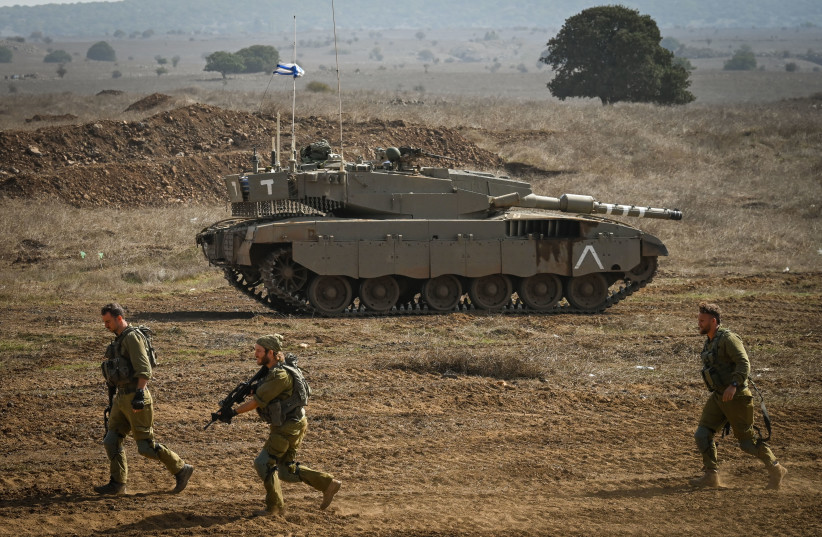
Reserve Sergeant Omer Patsianash, who participated in setting up the protest tent, emphasized the urgency of their demand, highlighting the need for a clear policy to encourage voluntary emigration and the necessity of taking significant territory from the Gaza Strip, placing it under Israeli control.
"All the solutions that the political echelon is currently proposing are ineffective solutions that will lead us exactly to where we were on October 6. We enter, fight, die, leave, the enemy reorganizes itself - and we are attacked again," Patsianas explained. "I see what is happening in the Gaza envelope, I see control that announces bombings at the height of 10 meters, on roads, and highways...
"So, if you claim that you are going to defeat Hamas and fight to the end, why are you protecting us like this? Why are you giving us more bomb shelters and solutions that only show how much legitimacy the enemy has to strengthen itself and attack us again? Why are we not ready to break this concept already and adopt a new policy that contributes to the security of the State of Israel?"
Brigade Sgt.-Maj, Gilad Ach Husif stressed that they were not prepared to go home without finishing the battle against Hamas.
"We are a group of reservists, we have completed the fighting in the Gaza Strip and the north, we are not ready to go home without finishing this battle until we decide it," he said. "From our perspective, this decision is not an empty slogan. We cannot end this battle like the previous rounds.
"It will not be Operation Protective Edge. We are going to sleep here until the government makes the right decisions. We want to thank all the Knesset members, citizens, and grieving parents who come here to hear us and identify with us, and secondly, we call on all reservists who are now being released from combat not to go home."
"The battle is not over," he continued. "Now we are committed to preserving the achievements we have made through tremendous effort. Come here with your equipment and stay with us until the government takes action."
Go to the full article >>Yair Lapid: the 'day after' must be a partnership, unlike the disengagement
The opposition leader also addressed the recent High Court decision restoring the 'reasonableness standard,' saying that the assertion of judicial independence protected Israel on the global stage.
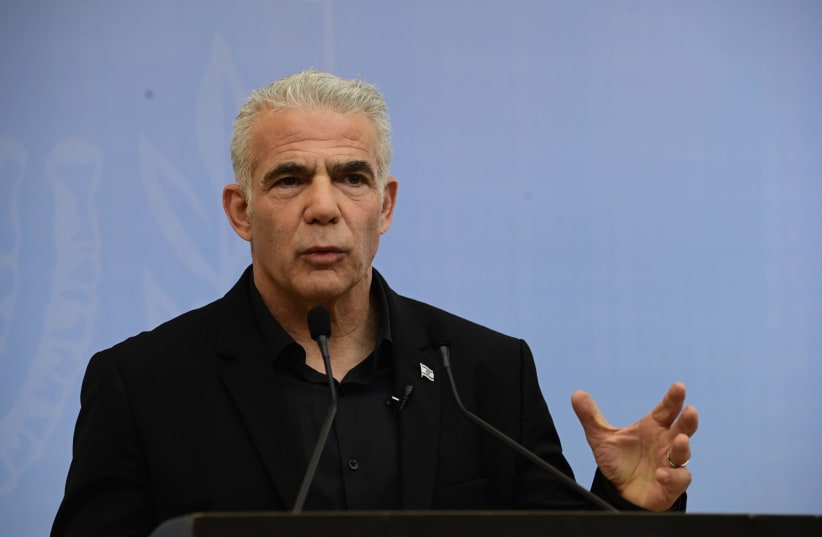
Opposition leader MK Yair Lapid spoke to an Israeli radio station this morning about the war in Gaza, the "day after," and the recent High Court decision annulling the Knesset"s controversial Basic Law to abolish the judicial "reasonableness standard."
Asked about the High Court ruling, Lapid said, "The court made the only ruling it could make under these conditions, and everyone shouted for a few hours what they were obviously going to shout, and that's the end of it. We will have to enact a Basic Law to regulate these things, and that needs to be done with a broad national consensus."
As for right now, Lapid said, "there are combat soldiers in Gaza and this doesn't interest them, and they're right."
Asked how the High Court decision related to potential efforts to prosecute Israel at the International Criminal Court in The Hague, the opposition leader said that the ruling Monday night "improved significantly the ability to protect our fighters."
"The international legal system respects independent legal systems," Lapid said. "The Israeli argument was, 'We don't need a babysitter, we know how to monitor ourselves independently, we have a separation of powers' – and today, too, we will be able to tell them the same thing."
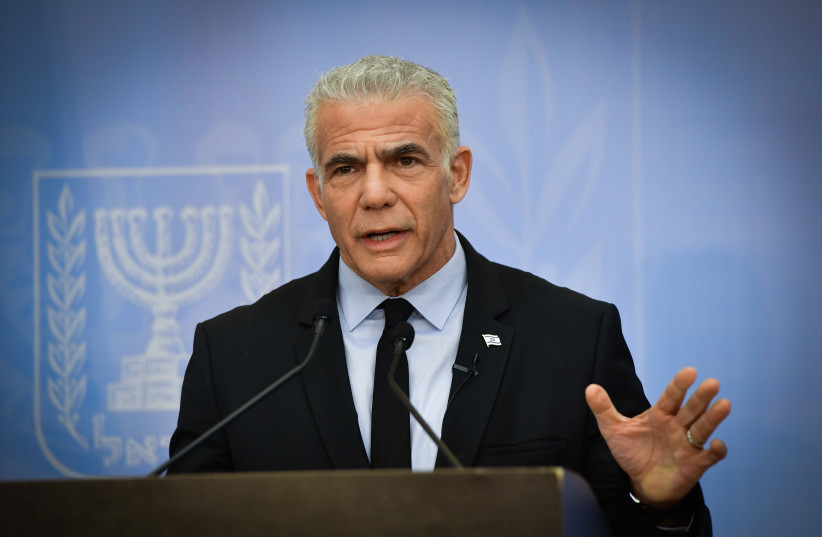 Yesh Atid head MK Yair Lapid speaks during a press conference in Tel Aviv on October 26, 2023. (credit: AVSHALOM SASSONI/FLASH90)
Yesh Atid head MK Yair Lapid speaks during a press conference in Tel Aviv on October 26, 2023. (credit: AVSHALOM SASSONI/FLASH90)Lapid: PA has a role to play in Gaza, Qatar and Turkey do not
Concerning "the day after" in Gaza, Lapid invoked the plan he presented earlier on in the war. "Unlike the government," the Yesh Atid head said, "I published a plan for the day after: the conditions for completing stage one, the conditions for completing stage two – everything was very organized.
"What I said was complicated, because it's a complicated situation, and I don't believe in people who offer simple, one-sentence solutions to complicated situations."
Lapid reiterated that, in his view, "the Palestinian Authority should be one component of the civilian apparatus that will manage the Strip on "the day after."
"There is something strange," Lapid said: "that [Prime Minister Benjamin] Netanyahu goes around and holds press conferences and says, 'We will not hand over Gaza to Abu Mazens rule.' [But] no one suggested that." Lapid emphasized that in the plan he proposed, "the security of Israel will remain in the hands of Israel, and we will not trust anyone."
The opposition leader invoked Israel's history with Hezbollah in Lebanon to demonstrate the importance of Israeli self-reliance for security: "We saw what happened in the North," he said. "There are supposed to be 15,000 UNIFIL soldiers in southern Lebanon. There are no binoculars in the world good enough to see them."
So, Lapid said, Israel will have to control security in Gaza "for years, until we know that Hamas has no possibility of returning to power." This will have to be a continuous effort, he said: "They will try to return. We need to eradicate them, [including] their governmental capacities, and then make sure they have no way to return."
Here, he cited a lesson of Israel"s unilateral disengagement from the Gaza Strip in 2005: "Today there is no debate, the Disengagement should not have been done without reaching some kind of agreement. Now you have to reach a situation where you are building something together with the moderate Arab countries. The US should lead."
Thus, Lapid said, there is a role for the PA: "The Palestinian Authority has a civilian operation inside Gaza. It would be stupid not to use such an infrastructure, and they're not identified with Hamas. They should be a component in [a future arrangement] because without such a component, it wouldn't be possible to bring in the Saudis, or other Arab countries.
"I don't think Qatar and Turkey should be involved," he specified. "They are hostile countries today."
Lapid: Now is not the time to pick fights with Biden
Regarding the role of the United States in the war, Lapid said that "we need two main things from the Americans: time and advanced weapons."
He accused Netanyahu of playing politics with these necessities, saying that the relationship with the US "must not be jeopardized; it must not be sacrificed." But "Netanyahu knows that if he fights the Americans loudly it helps him in the base. In war, you don't do that. He started clashing with the Americans: completely unnecessary public clashes."
Lapid clarified that he did not blame Netanyahu's spats with the administration for the America's decision to withdraw the USS Gerald Ford aircraft carrier, which had been deployed to the Middle East in the days after October 7. "I don't think that's why they took the ship out," he said, "I just think wen need to have a better and quieter dialogue with the Americans.
"I'll sit down with [Secretary of State Antony] Blinken on Friday," he said. "We will probably discuss it."
Also on the agenda for his meeting with Blinken is the situation in the North, Lapid said. Asked whether war with Hezbollah is inevitable, he answered that "if necessary, yes, but the political effort that the Americans are now making should be given a chance. Blinken is coming to the region; this is part of the effort.
"We need to understand," however, that "if the political effort does not succeed in keeping Hezbollah away from the northern border, Israel will have no choice but to do it by force. We will not allow the residents of Manara and Kiryat Shmona to live under this threat forever and ever."
Go to the full article >>Only 15% of Israelis want Netanyahu to keep job after Gaza war, poll finds
Successive surveys have found his popularity has fallen sharply since the surprise October attack by Hamas that led to the deadliest day in Israel's 75 years.
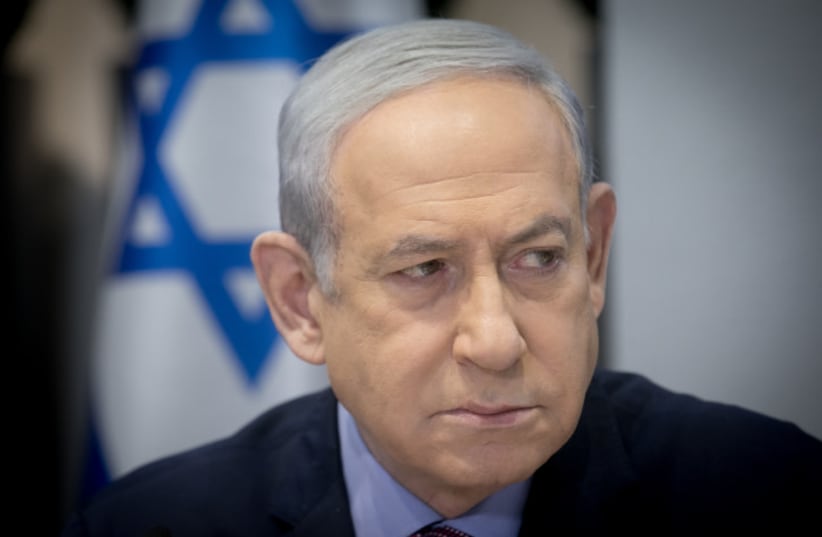
Only 15% of Israelis want Prime Minister Benjamin Netanyahu to stay in office after the war on Hamas in Gaza ends, though many more still support his strategy of crushing the terrorists in the Palestinian enclave, according to a poll published on Tuesday.
Netanyahu promised to crush Hamas after its Oct. 7 rampage in southern Israel in which 1,200 people were killed and 240 abducted to Gaza. Israeli forces have laid much of Gaza to waste in their nearly three-month offensive.
Netanyahu has said such intense military pressure is also vital to ensure that the remaining 129 hostages still held in Gaza are returned after around 100 were freed in late November in a swap deal also involving hundreds of Palestinian prisoners.
What do Israelis think?
In the poll conducted by the Israel Democracy Institute (IDI), 56% of those questioned said continuing the military offensive was the best way to recover the hostages, while 24% thought a swap deal including the release of thousands more Palestinian prisoners from Israel's jails would be best.
Allegedly, more than 22,000 Palestinians have been killed in the war, according to Hamas health officials, and most of the population displaced. Israel says it has killed some 8,000 Palestinian terrorists and has vowed to hunt down Hamas leaders.
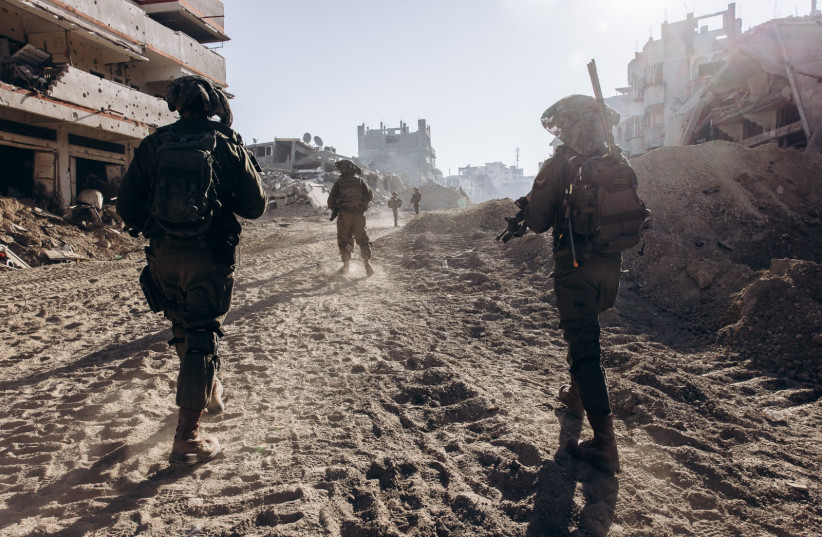
But a mere 15% want Netanyahu to be prime minister once the war is over, the poll showed. His political rival and present war cabinet partner, centrist Benny Gantz, garnered support from 23% of interviewees. Around 30% named no preferred leader.
The poll was conducted among 746 respondents between Dec. 25-28, with a 95% confidence level, the IDI said. A previous IDI poll in December found that 69% of Israelis thought that elections should be held as soon as the war ends.
Netanyahu said on Saturday it would be months before victory is achieved. Successive surveys have found his popularity has fallen sharply since the surprise October attack by Hamas that led to the deadliest day in Israel's 75 years.
Go to the full article >>IDF gains control of second key Hamas intel center in northern Gaza
This intelligence center is considered the most important in northern Gaza.
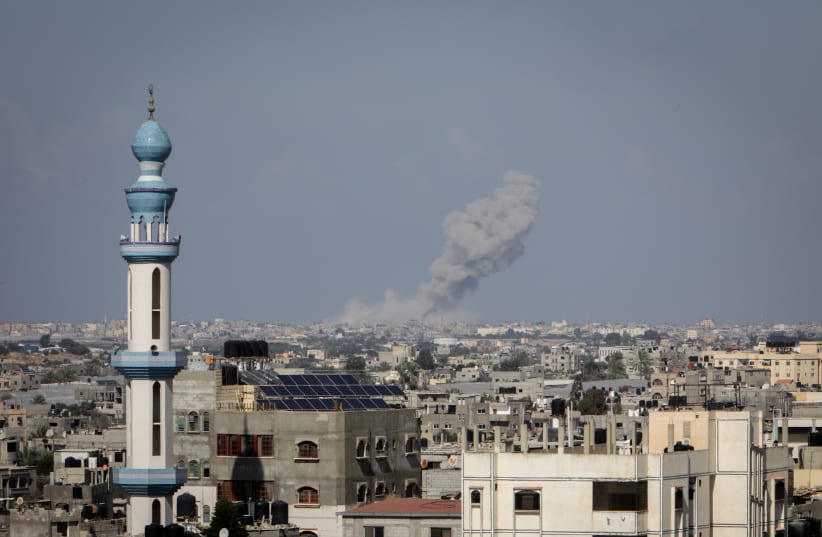
The IDF has completed its takeover of the second most important Hamas intelligence center in northern Gaza, as it finishes ousting the terror group from its last spot in Daraj-Tuffah.
Fighting over the area has gone on for weeks, with soldiers Yaron Eliezer Chnitz, Efrayim Yachman, and Itai Boton all falling in battle last week.
Go to the full article >>Israel-Hamas War: What you need to know
- Hamas launched a massive attack on October 7, with thousands of terrorists infiltrating from the Gaza border and taking some 240 hostages into Gaza
- Over 1,200 Israelis and foreign nationals were murdered, including over 350 in the Re'im music festival and hundreds of Israeli civilians across Gaza border communities